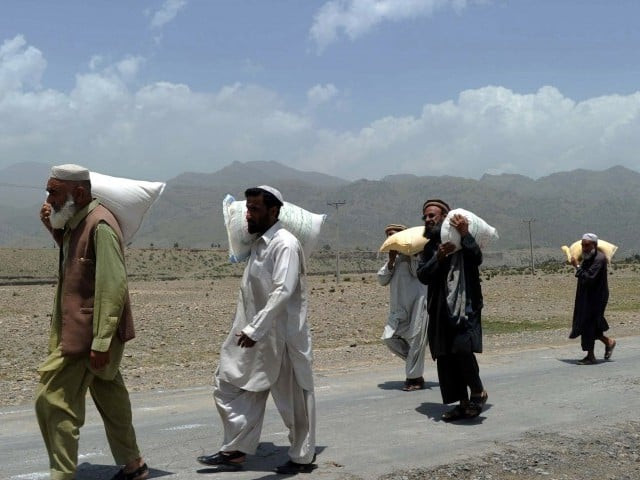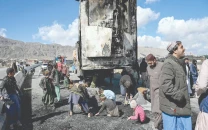FRC recommendations: Proposals on Fata status ‘not the final word’
Reforms panel’s chief says fate of Fata will ultimately be decided by its people

PHOTO: AFP
One of the proposals made by the commission is the creation of tribal councils to tackle two key sticking points – the future constitutional status of Fata and amendment in the Frontier Crimes Regulation (FCR). This proposal drew the sharpest reaction.

“A final decision on the issue will be taken at an appropriate time by Prime Minister Nawaz Sharif after a meeting with the parliamentarians and other stakeholders from Fata. The FRC is not a final authority,” said the commission’s chairman, Ejaz Ahmed Qureshi, who made public the interim report of his commission last month.
Talking to The Express Tribune, he said the commission might add a few other recommendations in its final report if the prime minister considered it essential following his meeting with the Fata parliamentarians, political leaders, international donors and civil society representatives.
“The Fata parliamentarians and people of the tribal areas, including tribal elders, will ultimately have to take a decision about their own future,” he said.
The commission – appointed by the Khyber-Pakhtunkhwa (K-P) Governor Sardar Mehtab Khan last year – had made in its interim report extensive recommendations to decide the future constitutional and administrative status of Fata.
The report, however, sparked a serious controversy as not only the elected representatives but the Fata Political Alliance, tribal elders and a strong section of civil society rejected the recommendations made in the interim report.
Five Fata lawmakers – including MNAs and Senators – while disagreeing with the recommendations had termed them unrealistic and unacceptable.
Ghazi Gulab Jamal, the parliamentary leader of tribal lawmakers in National Assembly, told a news conference last week that the FRC had not consulted them before drafting its interim report.
The Fata Political Alliance, a group represented by all political parties of tribal areas, had also turned down certain recommendations of the interim report and said these recommendations would not help improve governance in the tribal regions.
One of the leaders of the alliance, Sahibzada Haroon Rasheed – a former MNA affiliated with Jamaat-e-Islami – described the report as in violation of basic human rights.
The FRC Chairman Qureshi, however, defended the interim report and claimed that all stakeholders – including Fata parliamentarians, political parties, tribal elders, civil society leaders, serving and retired officers as well as lawyers from tribal areas – were engaged in a comprehensive consultation during its preparation.
“The commission had two meetings with Fata parliamentarians to seek their views on the proposed reforms. A few of them expressed their views during the course of consultations while some presented their proposals in writing,” he said, adding, “It is absolutely incorrect that they were not heard by the commission.”
Published in The Express Tribune, May 22nd, 2015.



















COMMENTS
Comments are moderated and generally will be posted if they are on-topic and not abusive.
For more information, please see our Comments FAQ